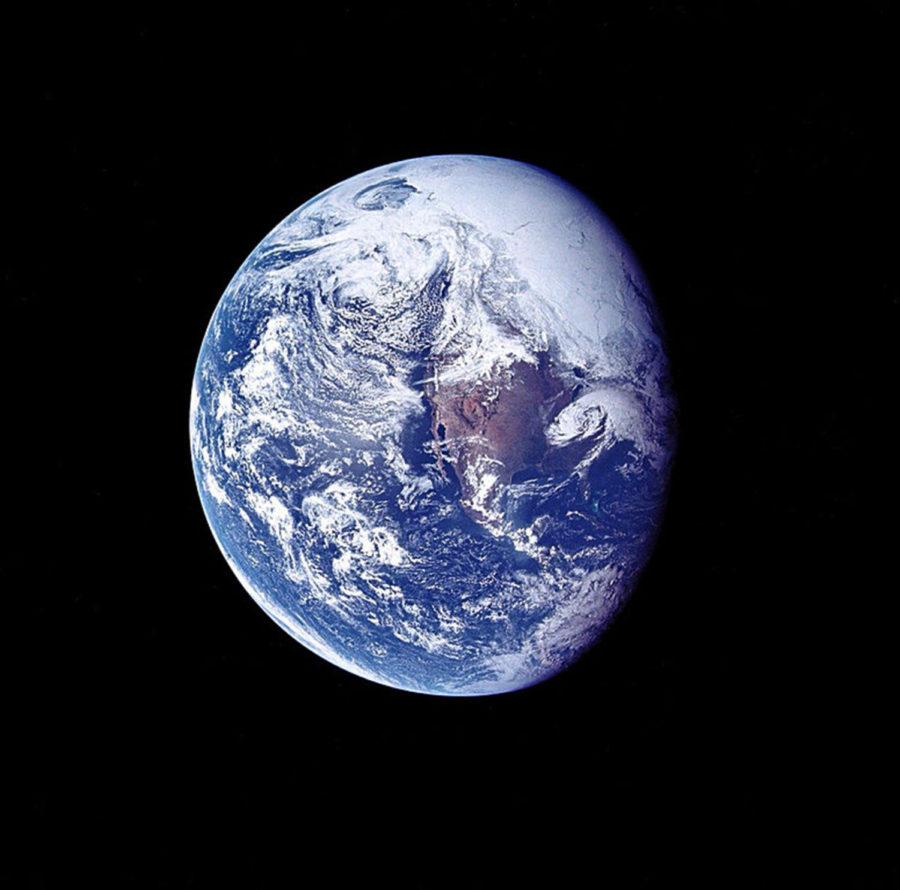Glawe: NASA, pride of America
Courtesy commons.wikimedia.org
NASA recently launched another space probe to the moon while Virgin Galactic completed further speed testing for commercialized space flight. Columnist Michael Glawe bemoans the lack of public interest furthering NASA’s quest to explore space and its potential.
September 10, 2013
There is no greater frustration a lover of space can experience than witnessing the annual defunding of NASA’s budget. The horror is further complicated with nearly every mention of that glorified agency from the abuse of such trivial comments as, “Well, why are we even focusing our efforts ‘up there’ when we’ve got so many problems ‘down here’?”
While I’m sure I am neither the first nor the last to refortify the defenses of our beloved space program (and surely it will be difficult to avoid a Neil Degrasse Tyson quote), recent events have me quite perturbed. Consider this my “call to arms.”
At 10:27 p.m. last Friday, NASA launched their Lunar Atmosphere and Dust Environment Explorer, or LADEE, moon probe into space. One day before that launch, Virgin Galactic’s “SpaceShipTwo,” the precursor to commercialized space, punched through the sound barrier 69,000 feet over the Mojave Desert. What is so special about these two flights? Nothing.
Virgin Galactic is on the precipice of reaping a harvest originally planted by a public endeavor — the exploration of space. Meanwhile, NASA is returning to a place we’ve already been to before, and while their little experiments are certainly important, we remain curious what happened to the manned mission to Mars. Well, the Soviet Union was vanquished, so what’s the point?
I am, like many others, dismayed by the lack of public outcry against our paltry efforts to expand the frontier of space. During my internship in Washington this past summer, I was given the opportunity to attend a briefing led by representatives from many of the private companies contracted by NASA. Like the great aviation companies of old (North American, Grumman, etc.), the private industry still relies heavily on NASA’s future. The private industry is certainly in favor of more daring adventures (though, their motivating factor is long-term profit), but where is the public?
I could simply bomb readers with a plethora of the innovations NASA has contributed to the world (innovations that we take advantage of every day), but I prefer to give the skinny on why this agency is so vital to our country.
History is littered with the daring expeditions of mankind, where the lines separating familiarity and the vastness of the unknown are drawn and redrawn. I don’t think it is necessary to emphasize the importance of the Santa Maria’s journey to the Americas or the voyage of the HMS Beagle. Their contributions require no further exaltation. Surely, the Saturn V and her pilots rank with those great vessels and their crews.
Humans declared the headings “We go west!” and “To the Moon!” Perhaps there are activators to these motives, as American astrophysicist Degrasse Tyson humbly points out. (I tried to restrained myself by focusing solely on my own ideals, but to no avail).
As Tyson notes, there are economic, religious, war and survival drivers that force the inundation of large government investment in such ventures. For instance, during the 1960s, the United States was fighting for survival against the Soviet Union (we are reminded of the fact that Sputnik was launched from a hollowed out intercontinental ballistic missile).
Why can’t it be the case that we endeavor to expand the frontier of space upon sounder principles? Why can’t we explore for the sake of curiosity? It is upon this ideal that a country aspires not for aplomb but endeavors on behalf of mankind.
America has every reason to commit itself to further space exploration, profit-making aside. The flame of imagination will be reignited, and the public will once again care, as surely they must, about our place in the universe. Children will again dream of becoming astronauts because it is through the dangers and wonders of space that heroes are created. NASA engineers will be revered as they once were.
In looking at the skies, we can see tomorrow.
By exploring the cosmos, we will uncover a deeper understanding of our existence, and I place emphasis on “our.” That understanding is not, and should not be, accomplished by private individuals but by the entire human race. If the world will not answer the beckoning of the unknown, then the United States should go alone as the leader.
We certainly have many problems “down here” on the ground, but I believe achievements on behalf of mankind provide the cure to a world constantly in conflict with itself. After all, the denizens of Earth have always found peace among themselves by looking upon the stars in awe and appreciation of where we have been and where we intend to go.
With NASA, pride of America, as her leader, the world may continue liberated: “Her ongoing mission: to explore strange new worlds, to seek out new life forms and new civilizations, to boldly go where no man has gone before.”







